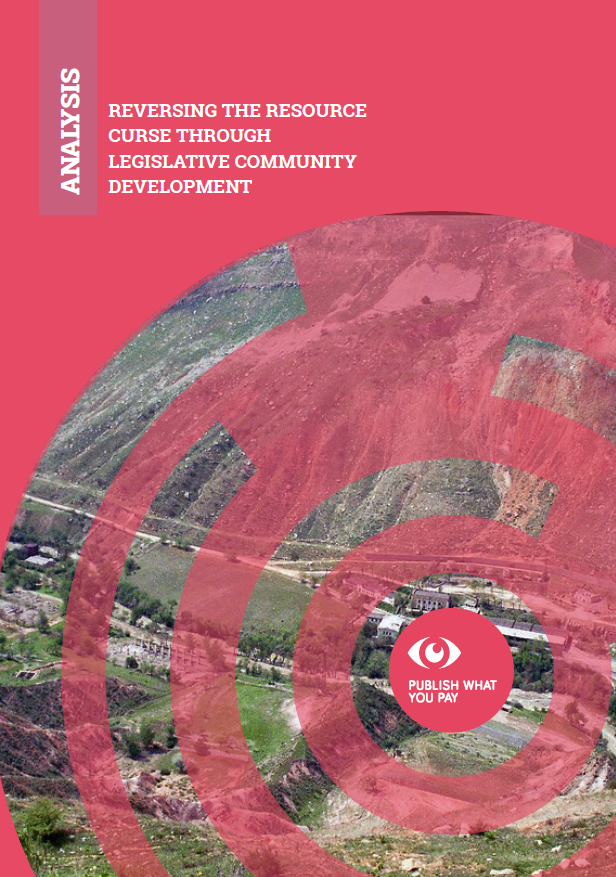The Extractive Industries Transparency Initiative (EITI) standard among other things prescribes reporting of sub national revenue transfers and social expenditures of extractive companies in
conciliation reports. This study is based on the findings of research conducted by RELUFA on sub national revenue transfers and social expenditures in Cameroon. The exploitation of some natural resources in Cameroon, notably the forest and solid minerals, entitles councils and local communities where the resources are exploited to royalties. Paradoxically, unlike the forest and minerals sector, there are no royalty allocations to councils and local communities hosting oil projects. But despite the legal provision for mineral royalties, the effectiveness of sub national mining royalty transfers to councils and local communities is still shrouded with many inconsistencies. Consequently, since 2011 RELUFA has been interested in exploring the issue of sub national revenue payments and transfers to councils and local
communities in Cameroon.
This study explores the effectiveness of sub national revenue payments and transfers and the social expenditures of companies in the locality of Figuil in the Mayo Louti division of the northern region of Cameroon. Figuil is host to two companies involved in the production of cement and marble. The choice of Figuil was justified as it is the best known town in Cameroon where industrial extraction has been on-going for more than 50 years. Under such circumstances, there is widespread expectation of the social and economic development of Figuil. But the reality is far from it.
In 2011, RELUFA conducted a study whose results were presented in a report titled: Sub National Natural Resource Revenue Management in Cameroon: Forest and Mining Royalties in Yokadouma, East Cameroon. This study drew experience from the forest royalty management and concluded the framework for sub national mining royalty management should be clarified so that the expectations of the local communities for development can be addressed. We can argue that this study contributed to changing public perceptions about the issue of mining royalties. CELPRO, a local civil society organization in Figuil wrote to the minister of finance in 2012 to request clarification on royalties for the council and local communities in Figuil. This made sub national mining royalty payments and transfers a topical issue.
Now that Cameroon has acquired an EITI “compliance country” status at the time a new EITI standard has been approved, RELUFA has opted to deepen the discussion on sub national
revenue payments and transfers and social payments by extractive companies in Cameroon. The aim of this study is to highlight the importance of effective sub national revenue transfers and monitoring of social expenditures of extractive companies. The study explores how sub national transfers and social expenditures can be effectively integrated in the EITI process so 5 Chapter VI. Conclusion and Recommendations
that mining can effectively contribute to local social and economic development.
This report was made possible by the financial support of the Natural Resource Governance Institute (NRGI). We are grateful to Evelyne Tsagué, Francophone Africa Coordinator for the NRGI.










